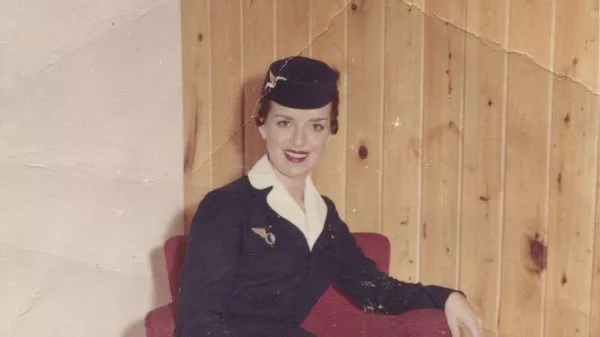The aviation industry bids farewell to Bette Nash, the world’s longest-serving flight attendant, who succumbed to cancer at the age of 88.
American Airlines, in a statement released on X, formerly Twitter, expressed sorrow over Nash’s passing, acknowledging her remarkable dedication to customer care during her nearly seven-decade tenure in the air. “We mourn the passing of Bette Nash, who spent nearly seven decades warmly caring for our customers in the air,” the statement read. “She started in 1957 and held the Guinness World Record for longest-serving flight attendant. Bette inspired generations of flight attendants. Fly high, Bette,” it continued.
Notably, Nash never formally retired from her role with American Airlines and breathed her last in hospice care following a recent diagnosis of breast cancer.
Nash embarked on her career journey as a stewardess with Eastern Airlines in 1957, a time when Dwight D. Eisenhower occupied the White House. Recalling the early days of her profession, Nash highlighted the stringent requirements imposed on flight attendants, including specific height and weight criteria. “You had to be a certain height, you had to be a certain weight. It used to be horrible. You put on a few pounds and you had to keep weighing yourself, and then if you stayed that way, they would take you off the payroll,” Nash revealed in an interview with ABC affiliate WJLA.
She further reminisced about the affordable airfare of yesteryears, noting that a ticket for a flight between New York and Washington, DC, cost a mere $12 at the time. Nash added that passengers could even purchase life insurance from a vending machine before boarding their planes.
Throughout her illustrious career, Nash bore witness to monumental shifts in the aviation landscape, including the impacts of deregulation, the advent of the computer age, and the implementation of stringent security measures post-September 11, 2001. She also observed a surge in commercial air travel during the 1950s, with air travel surpassing train travel in popularity by 1955 and airplanes replacing ocean liners as the preferred mode of transatlantic travel by 1957, according to the National Air and Space Museum.
Coinciding with Nash’s entry into the profession, jet passenger service took flight in the US with the introduction of Boeing 707 and Douglas DC-8 airliners. This marked a significant milestone in air travel, with jets revolutionizing the industry by enabling the construction of larger, faster, and more efficient airliners.
In response to Nash’s passing, the Association of Professional Flight Attendants paid tribute to her exemplary service, stating, “RIP, Bette. You won’t be forgotten.” Nash’s warmth, dedication, and unwavering commitment to service left an indelible mark on all those she encountered throughout her distinguished career in the skies.



























